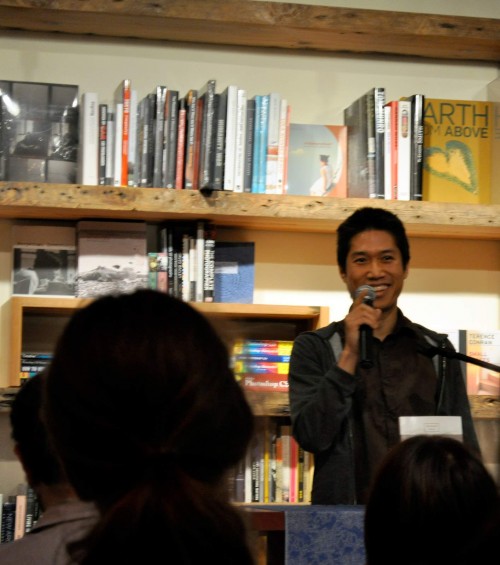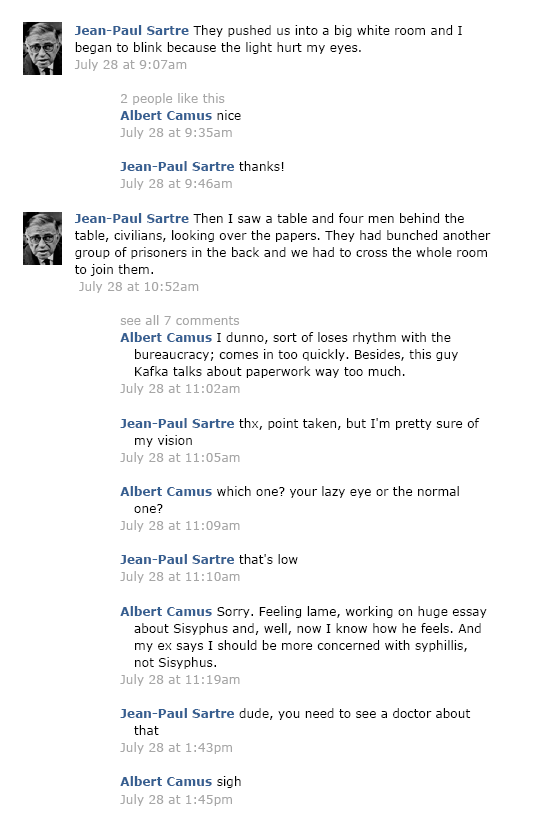Long Ass Interview with Tao Lin part 2 of 2

[Hi, this is Stephen Tully Dierks. I interviewed Tao Lin re his second novel, Richard Yates. This is part two of the interview. You can read the first part here.]
Are there any other artists with whom you’d like to collaborate, either directly or indirectly?
I would like to draw the album art for any band that I like. I would like to be the cover artist for an issue of McSweeney’s or Best American Non-Required Reading.
I think I feel like not collaborating on writing things at this point, unless it is a letters-type thing, like hikikomori with Ellen Kennedy.
Haley Joel Osment states in the book that Nobel Prize winners used to be depressed existentialists and now they are sociologists. Could you expound on this idea?
I think he was being sarcastic to a large degree. He maybe had some vague idea that people like Camus, Hermann Hesse, Sartre used to win the Nobel Prize and that there has been some kind of change, and that different kinds of writers now win the Nobel Prize, ones focused more on how people are like within a culture or a society, rather than within the universe, maybe, in that the “write-ups” about them seem, to Haley Joel Osment, to always mostly focus on their political or gender-issue or cultural themes (Haley Joel Osment assumes, though, that that’s just the journalists “doing their thing” and not an accurate portrayal of the writers; for example many articles connect Kafka to Prague rather than to “existential issues” or something).
Who do you think Haley Joel Osment would say is his favorite Nobel Prize winner for literature?
Maybe Knut Hamsun.
By what writer do you feel most interested in reading a review of Richard Yates for what venue?
Maybe a 5000-word review by Dennis Cooper that is somehow in New York Times Magazine (don’t think they publish reviews).
October 13th, 2010 / 10:57 am
Long Ass Interview w/ Tao Lin pt 1 of 2
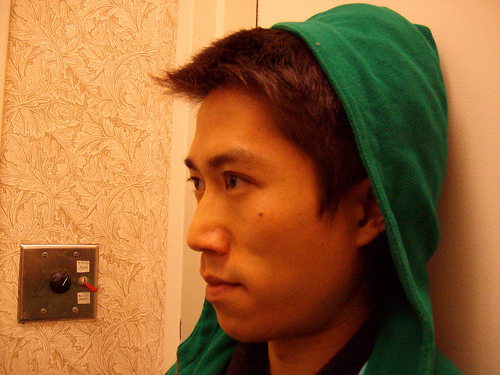
[Hi, this is Stephen Tully Dierks. I interviewed Tao Lin re his second novel, Richard Yates.]
STEPHEN: Potentially, every aspect of this novel unsettles one’s preconceived notions, from the use of title to character names to the treatment of charged themes (statutory rape, child abuse, etc.) to the notion of fiction versus non-fiction. Did you make a conscious effort to do these things, and did you have a goal or desired effect in mind?
TAO LIN: I focused, if anything, on not doing anything—or, rather, on not doing anything “extra” (the prose style, tone, perspective, focus, content of Richard Yates probably will, either as a side-effect of the aforementioned or the current “cultural climate” or the amount of preconception of the specific person reading the book, cause some preconceived notions to be unsettled, but I think any book that exists will unsettle preconceived notions, depending on who is reading it)—that I would perceive as “attempting to unsettle preconceived notions,” I think, by avoiding the defense or support of any of the characters’ behaviors, except that which the characters sometimes expressed naturally, within the narrative.
I didn’t include sentences conveying that in different contexts—for example [various cultures/subcultures over the past few thousand years]—a 22-year-old having sex with a 16-year-old, a person killing oneself, or someone vomiting food would not be notable. I didn’t want to attempt to include anything like that for any of the possibly “controversial” topics.
It doesn’t seem taboo to the “literary mainstream” of America, at this moment, to write about confusion, depression, meaninglessness, or uncertainty, and those are the things I feel focused on in Richard Yates, in my view.
What was the writing process like for this book? What is the history of its composition?
I wrote a short story in an early version of the final “prose style” of Richard Yates ~February/March 2006. Different drafts of that short story are published on bear parade and in an issue of Noon. That story is, to a large degree, about the character referenced in Richard Yates as “headbutt girl,” and I think I originally wanted Richard Yates to include maybe 3000 to 5000 words before where Richard Yates currently begins. I began writing things that are in Richard Yates, in different form, ~June/July 2006. I worked on it “idly” (maybe 1-6 hours 70-80% of days) until ~March 2008 when I worked on it “pretty hard” (maybe 2-6 hours 90-95% of days), until ~August 2008 when I sold shares in its royalties, gaining $12,000, and stopped working at my restaurant job, and worked on Richard Yates “very hard,” 6-12 hours ~98% of days, until ~October 2008. I felt it was finished. I emailed it to my publisher. They read it and said some things about it. ~December 2009 I worked on it 6-12 hours a day ~15 consecutive days. I felt it was finished. I emailed it to my publisher. They felt it was finished. ~February 2009 I asked them if I could work on it again. They said I could. I worked on it 6-12 hours a day ~25 consecutive days. I felt it was finished. ~November 2009 I worked on it 6-12 hours a day ~20 consecutive days. I felt it was finished. ~February 2010 I worked on it 6-12 hours a day ~20 consecutive days. I felt it was finished. Galleys were printed June 2010. I asked if I could work on it again. They said I could. I worked on it ~50 hours in a ~80 hour time period. I emailed it to my publisher. There were a few more emails where I changed 4-10 more non-typo things. The final draft was completed July 6 2010. A few more changes were made July 9 2010 to the PDF of the final draft.
October 12th, 2010 / 12:08 pm
The Writerly Ego; or, Letters from the “Cream of the Cream”

As many of you have probably seen already, Gawker posted an e-mail that the writer—I mean, she’s got this really sweet blue website and a whole mess of books with silly names, so she must be a writer—Janette Turner Hospital sent to her former MFA program at the University of South Carolina.
If you haven’t read yet, click through before you go any farther. It’s great. It’s astonishing. It deserves a blurb from Nicole Krauss. It’s one of the most obnoxious pieces of writing I’ve ever seen. In the e-mail, Turner essentially tells the students of South Carolina to carpool (because, I mean, who south of New Jersey has their own car? Am I right?) to NYC immediately (because, I mean, everywhere’s close to New York City, it’s the center of the literary world, and centers, and radii, and you understand—) so that they can see all of these mindblowing writers do these mindblowing things in mindblowing places like the Upper West Side (Upper Manhattan! she’s got jokes!) and Central Park (where people jog! really, this time it’s not even a joke!). Oh, and in case you didn’t know, Columbia students take advantage of all of these things, multiple times a week, and their brains feed on this hive mind of authorial brilliance like parasites. No kidding, multiple times a week. Oh, and the Columbia MFA? Pretty much the greatest thing since Raymond Carver (sample triumph: “Students take workshops and literature courses in equal measure.” NO THEY DO NOT.).
October 5th, 2010 / 11:50 am
A Dementedly Long Interview with Ben Greenman by Jaime Karnes
(Editor’s Note: A while back Roxane Gay reviewed Ben Greenman’s really fine short story collection, What He’s Poised to Do. Ben has another book coming out in early October, Celebrity Chekhov.)
“As an artist you have to have the confidence that it will be original once it passes through you.”
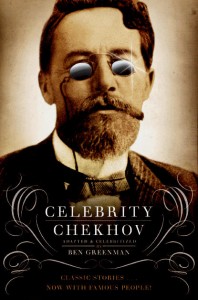
Ben Greenman is an editor at The New Yorker and author of numerous books of fiction, including Superbad, Superworse, A Circle is A Balloon and A Compass Both: Stories about Human Love, Correspondences, and Please Step Back. He also writes satirical musicals about the likes of Britney Spears and Sarah Palin; pens a political column by an earth ball; and maintains a website called Letters with Character that invites readers to write their favorite (or, in some cases, least favorite) fictional person.
This summer, Greenman’s What He’s Poised To Do was released by Harper Perennial; the Los Angeles Times called it “astonishing” and publications ranging from the Miami Herald to Bookslut agreed. His new collection, Celebrity Chekhov, publishes later this month. I met Ben in midtown and we wandered over to Bryant Park, where we discussed everything from a story collection’s “Albumness” to the potentially one-fingered Seth Rogen, whom Ben is famous for writing a comic letter to after the movie Superbad (same title as his book) was released.
October 1st, 2010 / 9:00 am
Malone and Savoca Week (2): A Conversation with Matthew Savoca
I enjoyed Matthew Savoca’s long poem, Long Love Poem With Descriptive Title, and for Malone and Savoca Week, I interviewed him about it and some novels he’s written. Our talk is almost 3400 words long (edited from ~6,000) and requires no preamble, so let’s get to it. Here is the book cover:
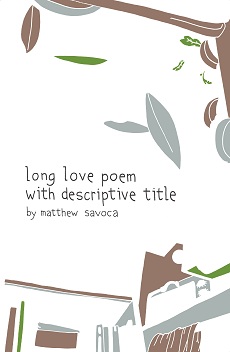 Adam: OK, I want to ask you about Long Love Poem With Descriptive Title. Ready?
Adam: OK, I want to ask you about Long Love Poem With Descriptive Title. Ready?
Matthew: Yes, let’s do it. I’m drinking a beer.
Adam: Okay, nice. First of all, can I call you the speaker?
Matthew: Yes.
Adam: Oh good. I feel like people make that very complicated.
Matthew: I am definitely the speaker, and I’m not trying to hide it.
Adam: Are you crazy?
Matthew: In what way?
Adam: Well, we should talk first about how much you’ve written.
Matthew: Okay.
Adam: How much have you written? READ MORE >
September 21st, 2010 / 9:49 am
On Freedom
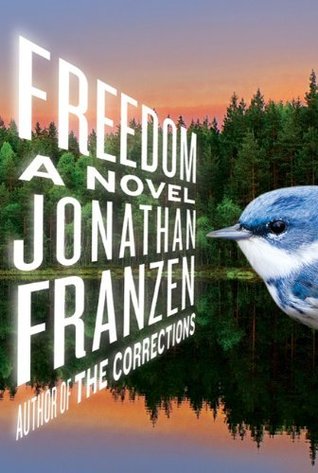 I have qualms about contributing to the current hype around Franzen’s Freedom, the endless pop-noise which ironically is confronted in the book’s lakeside allegory; but I feel compelled to, having been so moved by the book, and apologize for attaching my name to this review.
I have qualms about contributing to the current hype around Franzen’s Freedom, the endless pop-noise which ironically is confronted in the book’s lakeside allegory; but I feel compelled to, having been so moved by the book, and apologize for attaching my name to this review.
Soon after a quick intro written in omniscient third person, the reader encounters a longish part (broken into 3 chapters, labeled as such) written by one of its characters Patty — and yet, this doesn’t feel like “meta-fiction,” or even the show off flourishes of an adroit author; it seems, while not essential, strangely relevant. The reader’s context, for those who know Franzen, is that he is weary of “difficult” fiction for its preoccupation with language and fragmented narrative/consciousness (he wrote a Harper’s article critical of William Gaddis’ infuriating/challenging techniques, yet strangely aligns himself with D.F. Wallace, also an instigator). So one asks, why the difficult-ish structure?
September 17th, 2010 / 2:34 pm
From The Classroom
Having just finished week three of the fall semester, I thought I’d share a list of the films I’ve screened (so far) for my “Introduction to 20th Century Experimental Short Stories” class.
I open every class session by arriving about ten minutes early and starting up an experimental film, so as students trickle into the classroom they can transition out of the ordinary and into our “unique learning environment” — which is my clever way of saying “very strange class” — plus, I like making interdisciplinary connections between the texts we’re reading and other art forms, as a way of creating and extending a wider conversation around the idea of artistic experimentation in general.
Anyway…
On the first day of class the students were met with Ryan Trecartin – P.opular S.ky (section ish) (2009), which is a really good way to blow minds right off the bat.
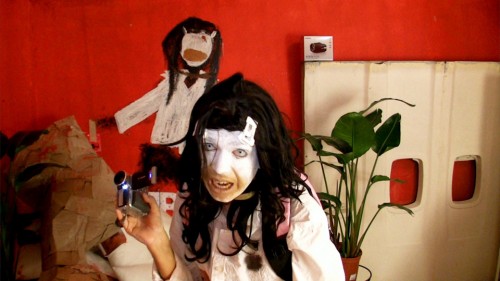
From there, it went like this…
September 10th, 2010 / 3:47 pm
You Are Sort of There: The “Richard Yates” Launch at BookCourt, 9/9/10
September 10th, 2010 / 10:57 am
Sartre publishes “The Wall” on his facebook wall
September 7th, 2010 / 6:23 pm
I Learned Important Things in School
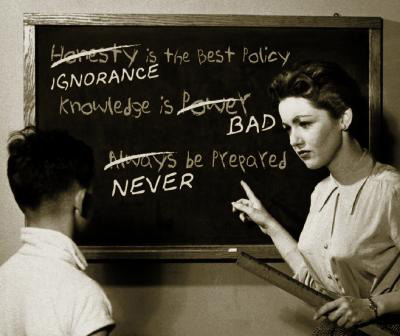
I have been in school for nearly 32 years with a few years off during my twenties to solve existential crises and the like. I don’t know much but I do know school and I have gone as far as one can possibly go. In a couple weeks, I will defend my dissertation and I have already started working as an assistant professor at a university in the middle of a cornfield so it’s safe to say that I will probably always be in school in one way or another.
Education is not something that has to happen in the classroom. I often tell my students they will learn just as much, if not more, beyond the classroom, by living life and losing at life and learning what to do with the critical thinking we try to instill in them. Anyone with a library card can get a valuable education. Self-taught scholars abound. Education is also a privilege. To be adequately prepared to succeed in college and to be able to afford college, either through financial aid or having your family pay for your education is a real gift and one not available to nearly enough of the people who want a college education. I believe the education system harbors an inherent bias to people who are white and/or middle class or wealthy but I also believe a good formal education has helped more people than it has harmed. Whenever a student complains about something like the amount of reading or writing I assign (to be fair, quite a bit), I like to remind them that they choose to be in college and if they don’t like it, they can move on to a different opportunity. They can also drop my class. I don’t mind. There are all kinds of things wrong with the education system but I don’t think there’s enough talk about what that the education system does right or at least I would like to talk about what a good education has done for me.
September 7th, 2010 / 5:17 pm

